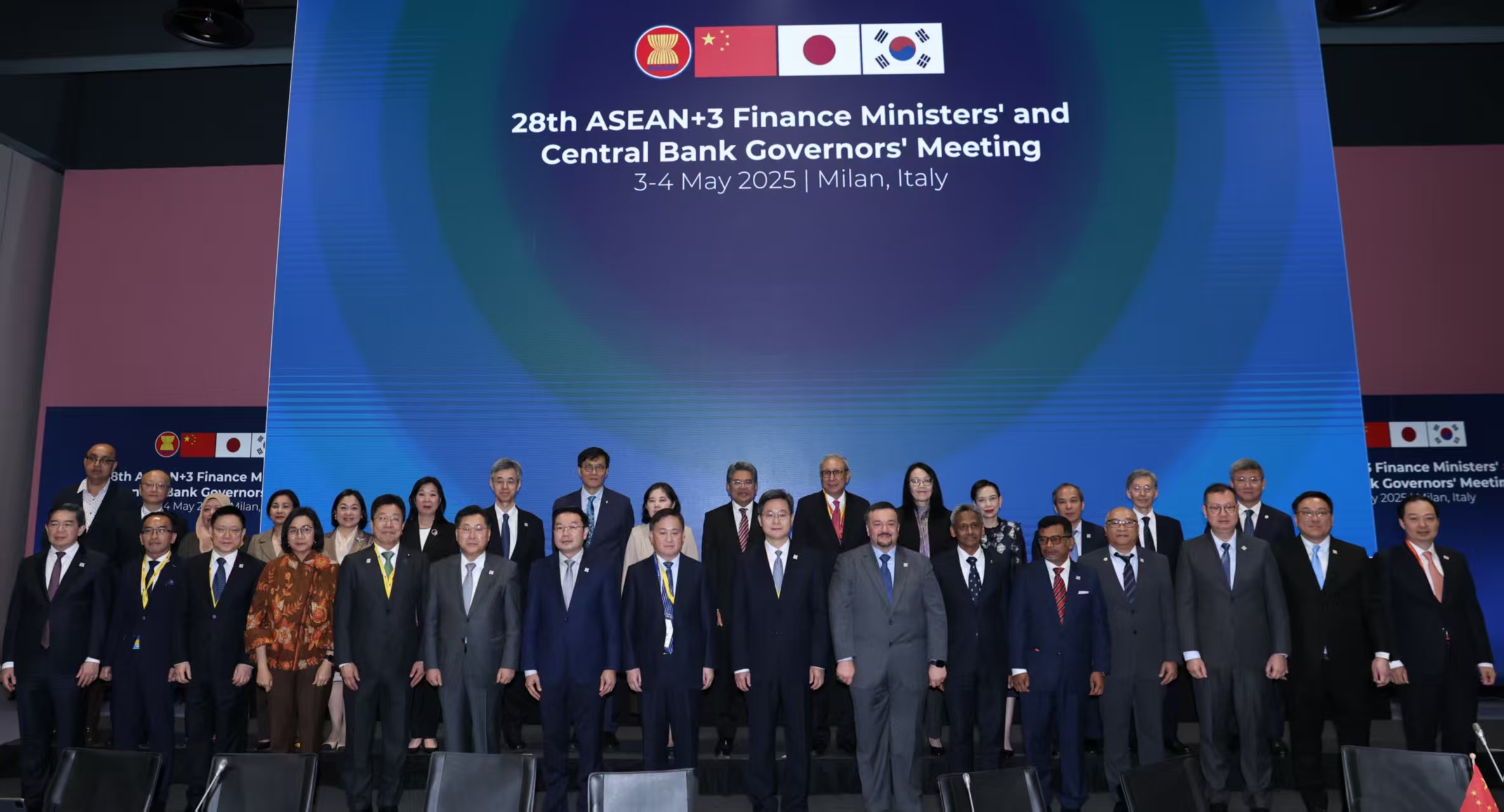

The 28th ASEAN+3 Finance Ministers’ and Central Bank Governors’ Meeting(AFMGM+3) was held in Milan, Italy on 4 May 2025.
The meeting focused on global and regional macroeconomic situation and ASEAN+3 financial cooperation, and issued a joint statement. China’s Minister of Finance Lan Fo’an attended the meeting and co-chaired specific sessions, accompanied by Vice Minister Liao Min.
Lan said that the current global economic landscape is undergoing profound adjustments, with headwinds against globalization and the rising unilateralism and protectionism, leading to increased instability and uncertainty. The ASEAN+3 region demonstrates strong resilience and significant growth potential, yet faces complex internal and external challenges. He called on all parties to earnestly implement the consensus reached at the ASEAN+3 Leaders’ Summit, uphold multilateralism and free trade, enhance macroeconomic policy communication and coordination, deepen regional trade and investment cooperation, and maintain stable and smooth industrial and supply chains, thereby contributing to regional economic and financial stability and integration.
He highlighted that China’s Central Conference on Work Related to Neighboring Countries held in early April underscored the importance of consolidating strategic mutual trust with neighboring countries, deepening development integration, and jointly creating a better future. China is willing to work with ASEAN+3 members to uphold openness and inclusiveness, strengthen solidarity and collaboration, continuously deepen regional financial cooperation, and leverage regional stability and certainty to counter global instability and uncertainty.
On behalf of China, Lan announced an additional contribution of USD 4 million to the China Technical Assistance Trust Fund in ASEAN+3 Macroeconomic Research Office (AMRO) to further support regional members for their capacity building efforts in enhancing macroeconomic surveillance and maintaining financial stability. He witnessed the signing ceremony of the contribution agreement.
The meeting endorsed the update of the Strategic Directions of ASEAN+3 Finance Process, agreed to launch a technical assistance instrument focusing on medium- to long-term structural issues, and acknowledged progress in discussions on the financing structure of the Chiang Mai Initiative Multilateralization (CMIM). It also welcomed the successful leadership transition at AMRO, the expansion of the ASEAN+3 Financial Think-Tank Network, and the deepening development of regional local currency bond markets, and approved the concept note for the future roadmap of the Disaster Risk Financing Initiative.
Prior to the meeting, Lan also chaired the 25th Trilateral Finance Ministers’ and Central Bank Governors’ Meeting among China, Japan, and Korea, as well as the first ASEAN+3 Finance Ministers’ Closed-Door Meeting. During the closed-door session, Lan elaborated on China’s fiscal policy approaches and experiences in effectively balancing economic growth promotion with medium- to long-term fiscal sustainability and addressing the challenges of population aging.
On the sidelines of the meetings, Lan held bilateral discussions or exchanges with Malaysia’s Minister of Finance II Datuk Seri Amir Hamzah Azizan, Indonesia’s Minister of Finance Sri Mulyani Indrawati, and Japan’s Minister of Finance Kato Katsunobu. They exchanged views on global and regional macroeconomic situations, ASEAN+3 financial cooperation, and key bilateral cooperation issues. Vice Minister Liao Min also attended these meetings.